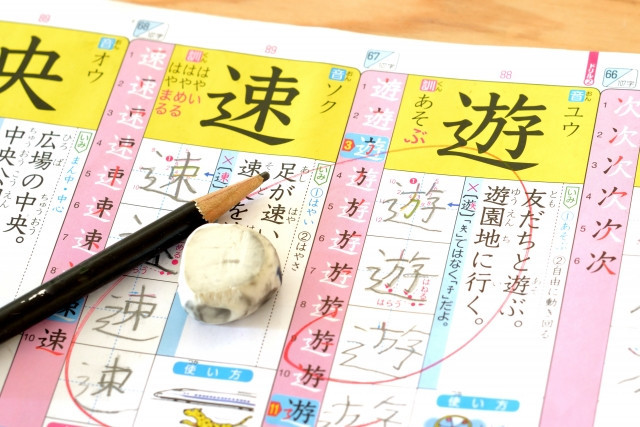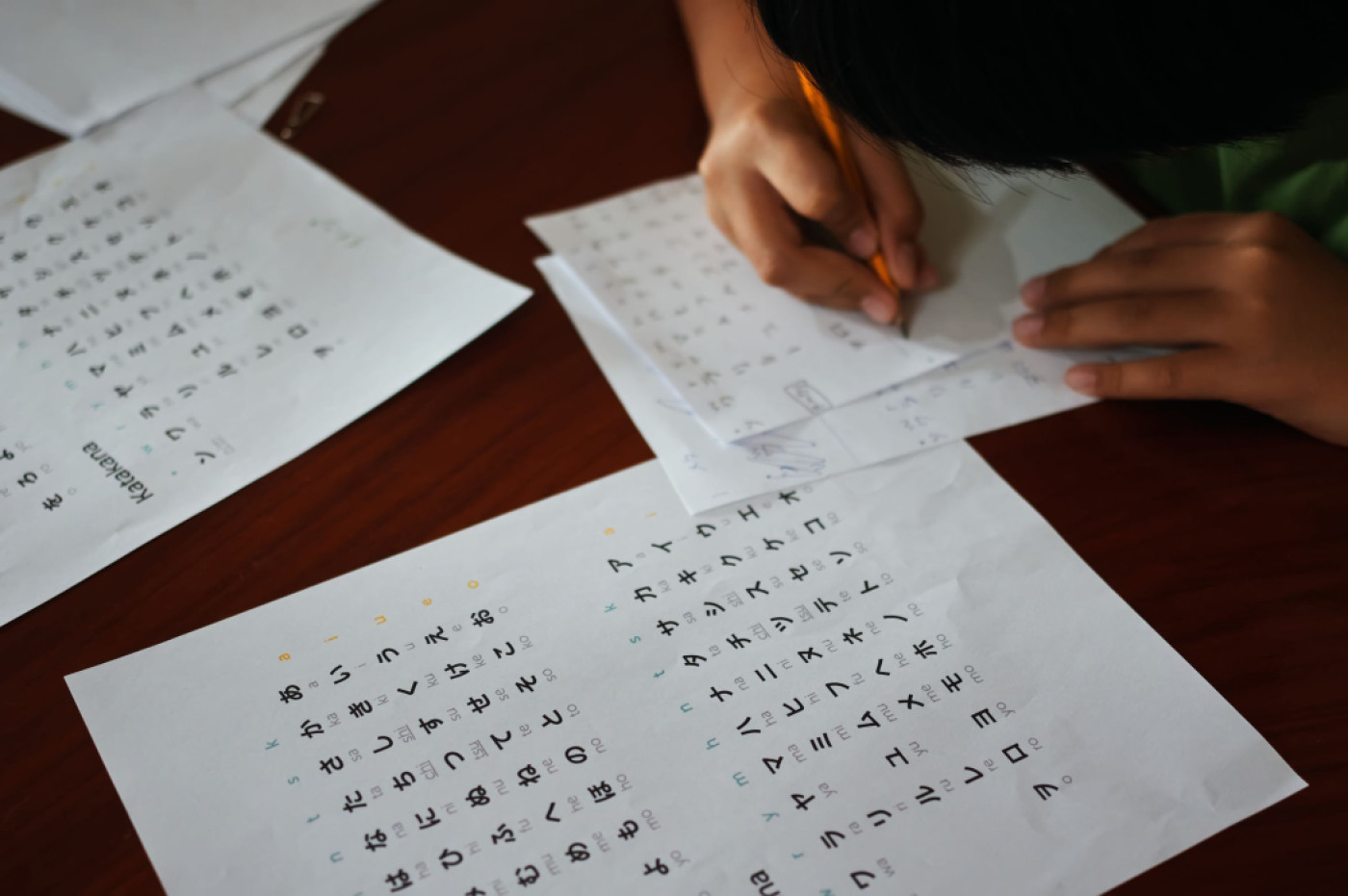Studying a language to achieve a conversational level can take a few months to a year, and even longer to master a language. The key to any long-term endeavor is starting early, and to start with the small things. Here are steps on starting your very own Japanese phrasebook.
Uses of a Phrasebook
Nothing that lasts comes easy – not even learning a new language. Whether your reason is to be able to speak Japanese, or to understand movies without the need for subtitles, or to gain more advantage over job opportunities, you will not attaining that goal overnight. More so, if that language is as wide and as complicated as that of Japan’s.
It is a process to undertake. Because you will be needing to learn a lot of new things such as a new alphabet writing system, vocabulary, grammar, expression, greetings, and phrases, studying any language will require ample time.
However, difficult to learn does not mean it is impossible to achieve. Having your phrasebook is one step towards reaching your goal. Unlike a dictionary which contains words and their meanings, a phrasebook comprises the most commonly used expressions of a certain language. Although you can browse these usual phrases on the internet, having your own book that you can highlight and write notes at has a different feel than just merely searching up on your phone. As writing helps people remember easier than by merely printing and reading, it is much more suggested that you start creating your own personalized phrasebook.
You don’t have to be overwhelmed. With your phrasebook at hand, and with dedication and hard work, your goal of speaking a new language is definitely not out of reach!
Writer's Pick
Starting your own Japanese Phrasebook

The Japanese language, Nihongo in Japanese, is among the most widely spoken languages in the world. Roughly 125 million people speak Nihongo, but it does not eliminate the fact that it is also amongst the most complicated languages. But if you put your heart and mind into studying, then you can be one of its hundred million speakers.
※ Ministry of Education, Culture, Sports, Science and Technology, (1)世界の母語人口(上位20言語)(The World’s Mother-tongue population (Top 20 languages))
Simple steps to follow in creating your own phrasebook:
1. Eye for a useful notebook
Start by looking for a handy and compact notebook that you can easily bring with you wherever you go. This way, even though learning Japanese is not your priority at the moment, it will allow you to make small progress during your spare time. It will help you maximize your time and make the most out of it. But you don’t have to be limited to a notebook. You can also keep notes on your phone, which you can also easily browse wherever you are.
2. Research the common Japanese phrases
The best way to be able to communicate with Japanese speakers faster is to learn the common phrases that they use every day. Have a good grasp of the frequently spoken Japanese words first. With the technology that we have today, one search on the internet will already give you a lot of resources. Make use of them as your reference.
3. Categorize into basic words, greetings, and phrases used in specific situations
This is not just to be organized, but also for easier access and memorization. Not only will you be able to find words faster, but it will also serve as a guideline of what you will need to study first. For example, learning the basic words will make studying greetings quicker for you as you are already familiar with some words that may also appear in such expressions. It is as though you are unlocking the next level.
4. Write them down on your notebook

Try to personally write the words and phrases in the notebook instead of just reading and printing them. This will help you to easily help you to memorize those words. Again, your phone can come in handy here. However, some people find it easier to remember when they physically write things down.
Basic Phrases to get you started
Here are some of the phrases that you might find helpful in your journey of learning the Japanese language.
Basic Words
-
Yes - はい (Hai)
-
No - いいえ (Iie)
-
Please - お願いします (Onegaishimasu)
-
Excuse me. - すみません。 (Sumimasen.)
-
I’m sorry. - ごめんなさい。 (Gomen nasai.)
-
Thank you. - ありがとうございます。 (Arigatou gozaimasu.)
-
You’re welcome. - どういたしまして。 (Dou itashimashite.)
Greetings
-
Good morning. - おはようございます。 (Ohayou gozaimasu.)
-
Hello or Good afternoon. - こんにちは。 (Konnichiwa.)
-
Good evening. - こんばんは。 (Konbanwa.)
-
Good night. - おやすみなさい。(Oyasumi nasai.)
-
How are you? - おげんきですか。(Ogenki desu ka?)
-
I’m fine. Thank you. - げんきです。(Genki desu.)
-
Long time, no see! - 久しぶり。(Hisashiburi.)
Additional tips for learning Japanese
Your end goal may not to become a great student of the language but to be a fluent speaker of it. Hence, challenge yourself to continue learning. Having a phrasebook helps, and it can jumpstart your course of learning. It is a good start, but it cannot bring you much farther without the practice of the Japanese words.
To be able to hone what you know, try to talk to others in Japanese so that you can get used to the language. It is much better if you have someone you can study the language with. If there aren’t people around you, language partners can be found online! You need to immerse yourself in Japan and its culture to fully understand the language. Try to watch Japanese dramas, movies with subtitles, or listen to Japanese songs to learn words and their usage. By doing this, you can get used to hearing a lot of common Japanese phrases. Then, you can test yourself on how much you know and do not know by watching them without subtitles. You can take note of those that you are not familiar with, then, later on, study them.

If you are up to a challenge and want to be witty with friends, here are some untranslatable Japanese words with no specific English translation.
Komorebi 木漏れ日
A poetic word, where can be described as a delighted sun rays touches the leaves on the trees or a beam of filtered sunshine streaming through leaves, creating a beautiful shadow. Picturesque? Yes, it is.
Wabi-sabi 侘寂
Perfectly imperfect life. It maybe sums up to define this word as "nothing lasts, nothing is perfect" or two old words describe life and art, perfect and eternal, and complexity and simplicity. Difficult to understand, but fascinating, right?
The key to growth is knowing that there is always room for improvement. Thus, strive to learn at least new Japanese words everyday. If you find it burdensome to create a phrasebook on your own, there are also a lot of available resources you can purchase online. Indeed, there is no excuse not to learn the language!
Summary

Learning a new language like that of Japan’s can be exciting but quite overwhelming at the same time. It may not be as easy as you imagine as it may require a lot of time and effort, but it is possible, especially when you are eager and motivated. Take it one step at a time, and challenge yourself to learn a word every day. Keep in mind; there is nothing that cannot be achieved through hard work!
We have many articles about studying Japanese on WeXpats Guide.
What we do here has been featured on “JAPAN DICTIONARY”, another site and resource for those studying Japanese.
Please check out the interview here to learn more about what we do.

































